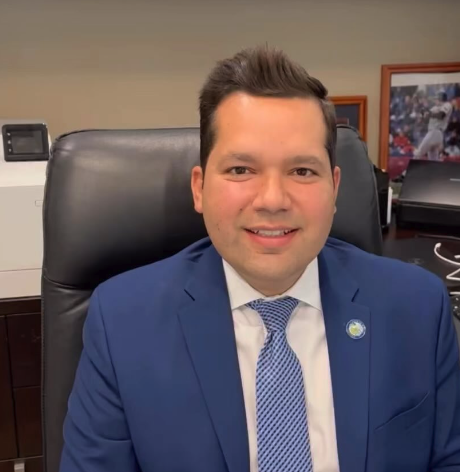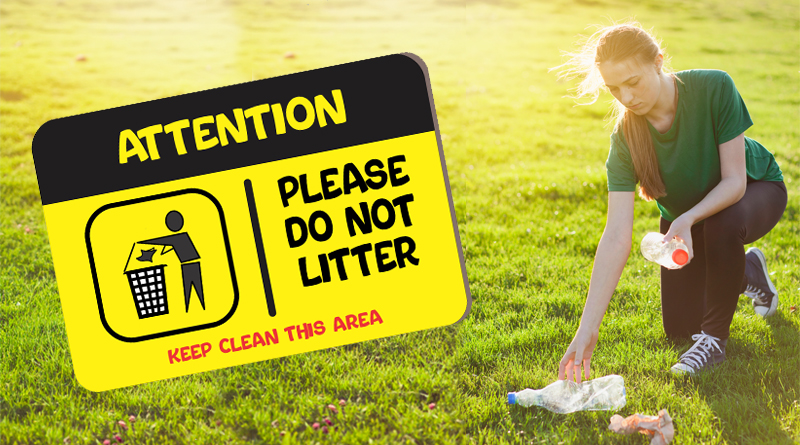New amendment in Doral for a clean city
By: Diana Bello Aristizábal
Solid waste pollution is an issue that is not talked about enough if we consider that it has devastating effects on the planet and on human health. With this in mind, the City of Doral Council approved by unanimous vote on June 14 an amendment that would increase fines for littering.
This amendment passed in a first reading, would be done to an ordinance adopted in 2006 in which the amount that offenders would pay was defined as follows: $100 for committing a first offense, $250 for a second offense, and $500 for repeating the offense for the third time.
If this amendment is approved in a second and final reading at the next council meeting, scheduled for August 9, those who fail to properly deposit their waste will have to pay $1,000 the first time, $2,000 the second time and $3,000 for committing a third offense.
 “The city continues to grow, and the current fines are really quite low compared to other municipalities similar to Doral. On the other hand, we have noticed that this type of infraction is increasing,” says Rafael Pineyro, Doral’s Vice Mayor, and the person responsible for putting this item on the council’s agenda, is the main motivation behind this amendment.
“The city continues to grow, and the current fines are really quite low compared to other municipalities similar to Doral. On the other hand, we have noticed that this type of infraction is increasing,” says Rafael Pineyro, Doral’s Vice Mayor, and the person responsible for putting this item on the council’s agenda, is the main motivation behind this amendment.
It should be noted that although Doral is not one of the dirtiest municipalities in Miami-Dade County, judging by the waste products we see on the streets every day, many are still not aware of the impact of disposing improperly a single piece of paper.
According to a 2019 World Bank report called ‘What a Waste 2.0’, improperly disposed waste products brings respiratory diseases, floods, and polluted oceans, among other things. Worst of all, if urgent actions are not taken, as per projections of this study, municipal waste worldwide could increase by 70% in the next 30 years.
Nationally, this is also a daunting problem, as revealed by a 2020 study released in May 2021 by the organization Keep America Beautiful. Among their findings, they learned that there were nearly 50 billion pieces of trash along America’s highways and waterways, while 90 percent of people surveyed for this study said litter is a problem in their state.
So, two questions arise: Do we want to be part of the solution or part of the problem? And if we consider that cities reflect the character of their inhabitants, what image do we want to project to those who walk in our streets?
“We cannot wait for the problem to escalate to start acting. With this amendment we want to be proactive through forceful actions,” explains Vice Mayor Pineyro, who adds that citizen involvement is key to this purpose, since no ordinance has a positive impact without the commitment of all.
But for there to be commitment, residents must first know what constitutes improperly disposing waste material. It is a violation of the code to throw, place or deposit waste in any amount in a shared space, such as roads and streets, outside of the containers legally determined for that purpose.
This includes waterways such as canals and lakes and also private property unless there is prior consent from the owners to take such action. In addition, anyone who fails to follow the rules established in parks about what is and isn’t allowed to carry is committing an offense. For example, it is prohibited to enter glass containers due to the risk that this material could represent if it breaks.
It is also considered an offense littering in drains and pipes and in the case of business owners such as restaurants to accumulate garbage inappropriately. “Restaurants must have up to four garbage containers, or the amount managers determine according to the waste that each business creates. These must be in a sanitary condition and be emptied several times a day to prevent them from becoming overloaded,” clarifies the Vice Mayor.
Beyond the amendment
Although the mechanism that will be used to make Doral a cleaner city is to strengthen fines for littering so that residents and visitors think twice before doing so, the real gain is that people understand the importance of taking care of what is of common use.
“In the end, we are all part of the community,” says Rafael Pineyro. For this reason, the approval of the amendment will include an educational campaign in Spanish and English through which residents will be able to learn not only the changes in the fines system but also how to correctly dispose of waste and where to call to report a violation or have their questions answered.
It must be said that, in the City of Doral, Code Compliance is the department in charge of enforcing the code. Those wishing to file a complaint should call 305-593-6680 or send an email to codecompliance@cityofdoral.com
“The purpose behind this is improving the quality of the environment and making each one of us watch that the rules are followed. People are encouraged to take pictures or make videos when they see someone littering.”
On the other hand, on the part of the city representatives, in order to analyze the impact of the amendment and the educational campaign, there will be a comparison made of the fines imposed before and after the amendment takes place. “There may be an increase in fines if people are more active when it comes to reporting them,” concludes Pineyro.


I am glad fines going up for littering but would have liked to see second , third fines way more because if you are still littering after first fine you need serious fines after that.
At least he is moving in correct direction .